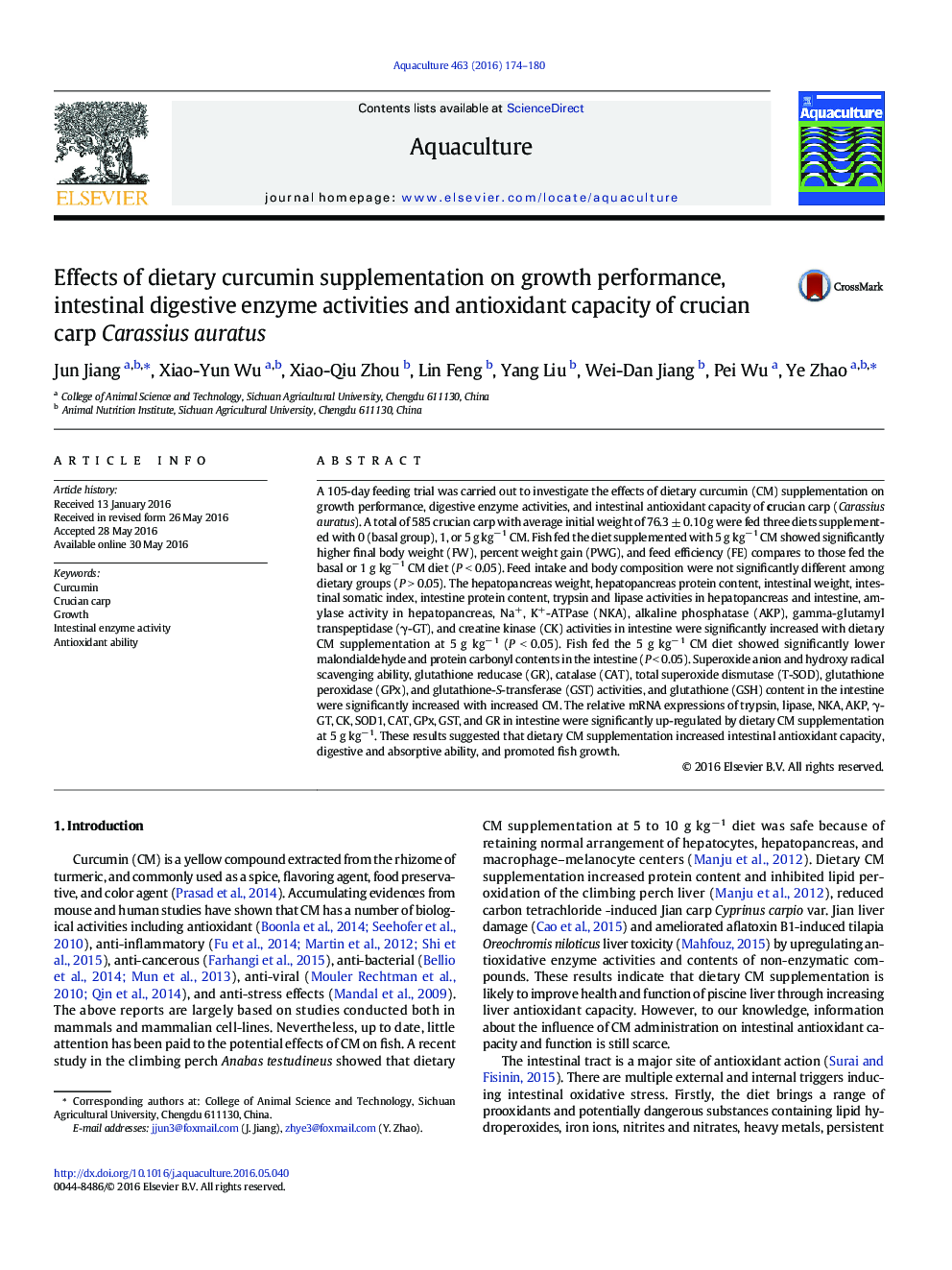| Article ID | Journal | Published Year | Pages | File Type |
|---|---|---|---|---|
| 2421343 | Aquaculture | 2016 | 7 Pages |
•The diet supplemented with curcumin improved fish growth performance.•The dietary curcumin promoted digestive and intestinal antioxidative ability in fish.•The mRNA expressions of digestive and antioxidative genes were up-regulated in response to dietary curcumin.
A 105-day feeding trial was carried out to investigate the effects of dietary curcumin (CM) supplementation on growth performance, digestive enzyme activities, and intestinal antioxidant capacity of crucian carp (Carassius auratus). A total of 585 crucian carp with average initial weight of 76.3 ± 0.10 g were fed three diets supplemented with 0 (basal group), 1, or 5 g kg− 1 CM. Fish fed the diet supplemented with 5 g kg− 1 CM showed significantly higher final body weight (FW), percent weight gain (PWG), and feed efficiency (FE) compares to those fed the basal or 1 g kg− 1 CM diet (P < 0.05). Feed intake and body composition were not significantly different among dietary groups (P > 0.05). The hepatopancreas weight, hepatopancreas protein content, intestinal weight, intestinal somatic index, intestine protein content, trypsin and lipase activities in hepatopancreas and intestine, amylase activity in hepatopancreas, Na+, K+-ATPase (NKA), alkaline phosphatase (AKP), gamma-glutamyl transpeptidase (γ-GT), and creatine kinase (CK) activities in intestine were significantly increased with dietary CM supplementation at 5 g kg− 1 (P < 0.05). Fish fed the 5 g kg− 1 CM diet showed significantly lower malondialdehyde and protein carbonyl contents in the intestine (P < 0.05). Superoxide anion and hydroxy radical scavenging ability, glutathione reducase (GR), catalase (CAT), total superoxide dismutase (T-SOD), glutathione peroxidase (GPx), and glutathione-S-transferase (GST) activities, and glutathione (GSH) content in the intestine were significantly increased with increased CM. The relative mRNA expressions of trypsin, lipase, NKA, AKP, γ-GT, CK, SOD1, CAT, GPx, GST, and GR in intestine were significantly up-regulated by dietary CM supplementation at 5 g kg− 1. These results suggested that dietary CM supplementation increased intestinal antioxidant capacity, digestive and absorptive ability, and promoted fish growth.
